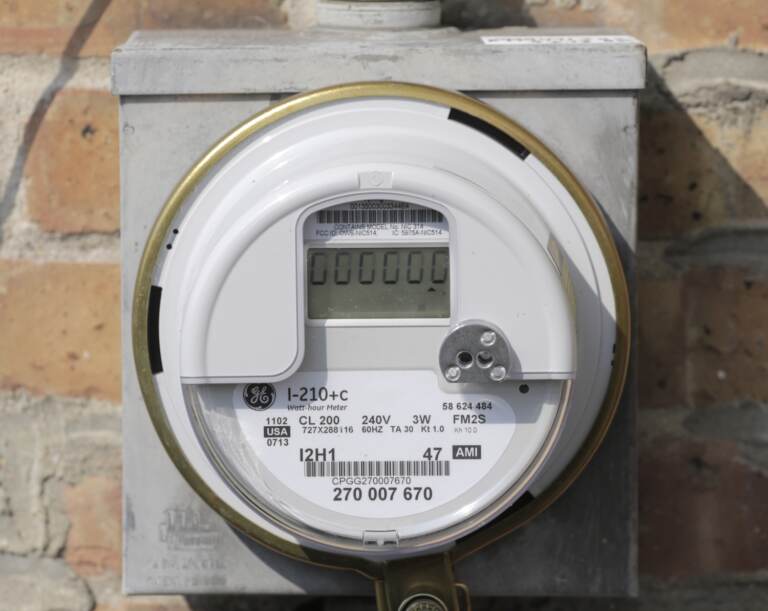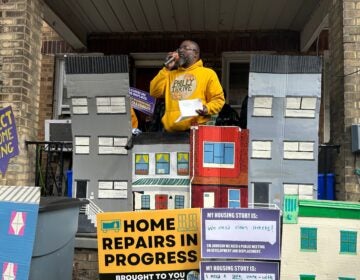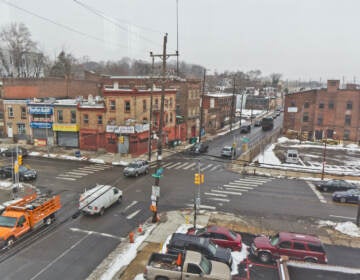Struggling to pay your heating bill in Pa.? This program could help
The Low Income Home Energy Assistance Program provides cash grants to help cover heating bills that don’t need to be repaid.
Listen 1:14
A utility meter is seen in a file photo. (AP Photo/M. Spencer Green)
Have a question about Philly’s neighborhoods or the systems that shape them? PlanPhilly reporters want to hear from you! Ask us a question or send us a story idea you think we should cover.
Many Pennsylvanians struggle to pay their utility bills.
So far this year, hundreds of thousands of Pennsylvanians have had their electric or gas service shut off.
With temperatures dropping, many households are seeing higher energy bills. But help is available for families living on low incomes — through the Low Income Home Energy Assistance Program, or LIHEAP.
“By the time a person finishes paying their mortgage or their rent, putting food on the table, clothing their children with just the basics, there’s just no more money left,” said Adrienne Hughes, who helps people apply for energy assistance through the We Never Say Never Neighborhood Energy Center in Philly. “A LIHEAP grant is so needed, because every little bit helps.”
What is LIHEAP?
LIHEAP is a federal program, administered at the state level, that helps low-income families pay their winter heating bills — and in some cases, cool their homes in the summer.
Families can get two types of grants through LIHEAP: “cash” and “crisis.”
Cash grants, ranging from $300 to $1,000, are sent directly to your utility company or fuel provider and show up as a credit on your bill. Households are limited to one cash grant per heating season. An unpaid heating bill is not required.
Crisis grants are for households that are at immediate risk of losing heat — for example, because of a looming utility shutoff, a lack of fuel, or a broken heater. Crisis grants range from $25 to $1,000.
“You can apply for both at the same time,” Hughes said.
In its Fiscal Year 2024 LIHEAP plan submitted to the U.S. Department of Health and Human Services, the state of Pennsylvania estimated that over 254,000 Pa. households could receive cash grants and more than 113,000 households could receive crisis assistance this winter.
Pennsylvania’s LIHEAP program opened for applications November 1, and will close in early April 2024.
Who qualifies?
Both renters and homeowners can qualify for LIHEAP.
A household needs to earn no more than 150% of the federal poverty line — or $21,870 for an individual and $45,000 for a family of four.
Hughes recommends applying even if you’re not sure whether you qualify.
“There are people who never applied for it before, and they may not know of the program,” she said. “Others have worked all their lives and have tried applying for LIHEAP but [were] always over income, so they don’t even try … You have a lot of college students who believe that because they are in college they can’t get it — and they can.”
How can you apply?
Pennsylvanians can apply for LIHEAP online or in person.
To apply online, use the state’s centralized benefit portal, COMPASS.
To apply in person, visit your local county assistance office. Philadelphia has several of these offices, in addition to more than a dozen neighborhood energy centers which can help you understand your options and apply.
Neighborhood energy centers will require an ID, proof of any income from the previous month, social security cards for all household members, and a utility bill, Hughes said.
To ask questions or request an application, call the state’s LIHEAP hotline at 1-866-857-7095 (for 24-hour assistance with crisis situations, try calling your local county assistance office.)
After you submit your application, state officials say you should allow up to 30 days for a response.

Subscribe to PlanPhilly
WHYY is your source for fact-based, in-depth journalism and information. As a nonprofit organization, we rely on financial support from readers like you. Please give today.







